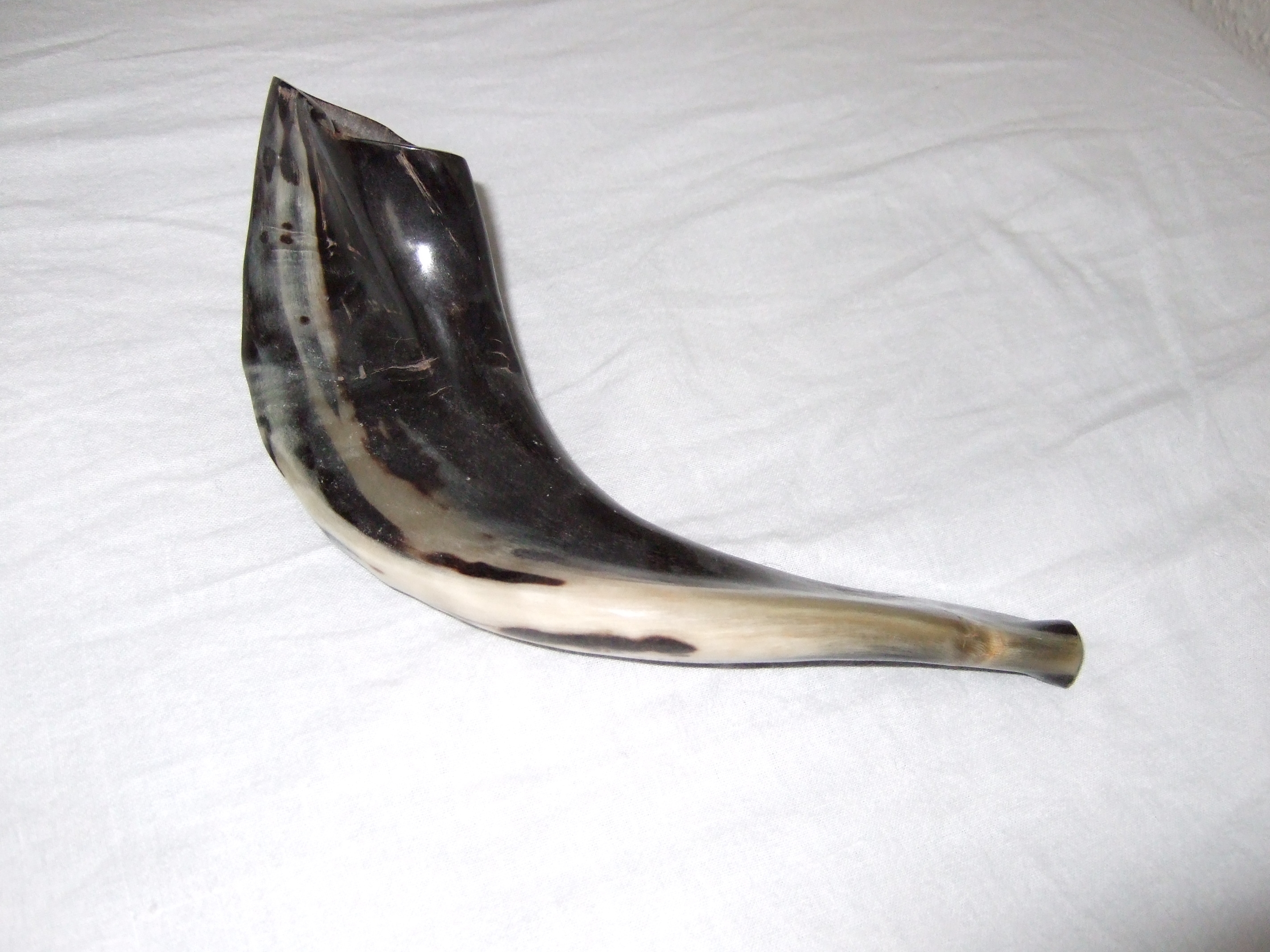
Lets take a few seconds to talk about midevil music.
first the bagpipe.
The origins of the bagpipe can be traced back to the most ancient civilizations. The bagpipe probably originated as a rustic instrument in many cultures because a herdsman had the necessary materials at hand: a goat or sheep skin and a reed pipe. The instrument is mentioned in the Bible, and historians believe that it originated in Sumaria. Through Celtic migration it was introduced to Persia and India, and subsequently to Greece and Rome. In fact, a Roman historian of the first century wrote that the Emporer Nero knew how to play the pipe with his mouth and the bag thrust under his arm. During the Middle Ages, however, the bagpipe was heard and appreciated by all levels of society.
click the link below to hear the bagpipe.
http://www.music.iastate.edu/antiqua/mp3/bagpipe.mp3
next up the shofar.
The Shofar is the ritual instrument of the ancient and modern Hebrews, the only Hebrew cultural instrument to have survived until now. Of martial origin, the shofar was a priestly instrument in Biblical times. According to the Mishna, two different forms of shofar were used in the Temple: one made of ibex horn, its bell ornamented with gold, was sounded at New Year and during the Yovel Days; one made of ram's horn with silver ornamentation was sounded on fast days.
click the link below to hear the shofar.
http://www.music.iastate.edu/antiqua/mp3/shofar.mp3
lovely, yes?
now a one I am a fan of the harp.
The harp is one of the most ancient types of stringed instruments. It was important in pre-Christian cultures and still survives today in many forms all over the world. Harps use open strings exclusively, thus the range of each is determined by the number of strings. In the Middle Ages strings were made from twisted animal gut (usually from sheep), although horse hair and even silk were used as well.
click the link below to hear the harp.
http://www.music.iastate.edu/antiqua/mp3/harp2.mp3
first the bagpipe.
The origins of the bagpipe can be traced back to the most ancient civilizations. The bagpipe probably originated as a rustic instrument in many cultures because a herdsman had the necessary materials at hand: a goat or sheep skin and a reed pipe. The instrument is mentioned in the Bible, and historians believe that it originated in Sumaria. Through Celtic migration it was introduced to Persia and India, and subsequently to Greece and Rome. In fact, a Roman historian of the first century wrote that the Emporer Nero knew how to play the pipe with his mouth and the bag thrust under his arm. During the Middle Ages, however, the bagpipe was heard and appreciated by all levels of society.
click the link below to hear the bagpipe.
http://www.music.iastate.edu/antiqua/mp3/bagpipe.mp3
next up the shofar.
The Shofar is the ritual instrument of the ancient and modern Hebrews, the only Hebrew cultural instrument to have survived until now. Of martial origin, the shofar was a priestly instrument in Biblical times. According to the Mishna, two different forms of shofar were used in the Temple: one made of ibex horn, its bell ornamented with gold, was sounded at New Year and during the Yovel Days; one made of ram's horn with silver ornamentation was sounded on fast days.
click the link below to hear the shofar.
http://www.music.iastate.edu/antiqua/mp3/shofar.mp3
lovely, yes?
now a one I am a fan of the harp.
The harp is one of the most ancient types of stringed instruments. It was important in pre-Christian cultures and still survives today in many forms all over the world. Harps use open strings exclusively, thus the range of each is determined by the number of strings. In the Middle Ages strings were made from twisted animal gut (usually from sheep), although horse hair and even silk were used as well.
click the link below to hear the harp.
http://www.music.iastate.edu/antiqua/mp3/harp2.mp3

No comments:
Post a Comment